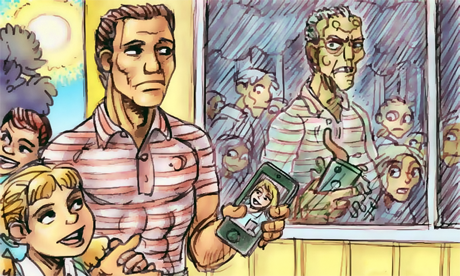He doesn’t like what he has come to stand for.
He knows that he’s fortunate to be born in the right time and place, with the right gender and skin colour, to make him one of the privileged in this world.
He knows that he’s the beneficiary of a history that has given him wealth and status, while depriving that wealth and status from others.
This history haunts him.
There is the dispossession of the Indigenous people, which means even the property he owns is tainted by the fact that it was never legally obtained to begin with.
There was, and is, the exploitation of people and resources in other parts of the world, which adds a human cost to the economic prosperity he enjoys.
The relative peace in his home country stands in stark contrast to the world wars his fellow countrymen fought on foreign lands, and the continuing conflicts in less fortunate countries. He might want to forget all this, but the boats that continue to arrive on his country’s shores jolt his conscience.
His body itself is a symbol of his inherited power and privilege.
He hears women talk about being afraid to go out at night alone, and is conscious of the hunched shoulders of women he passes on the street.
He sees the great strides women have made in the workforce, yet sits in management meetings where nine out of ten leaders are men.
He reacts angrily at stories of domestic violence, but knows that the anger he feels carries the same seeds of that violence. He sees bikini clad women on his television screen and feels guilty at admiring their bodies.
The power within him both seduces and scares him.
Fences are built around his property, just as borders were created around his country, to mark what he owns, and to keep out those who don’t belong.
As he drives around the sprawling city in which he lives, he sees the pollution filling up the waterways, the smog hanging in the air — the consequences of seeing a place as a possession to be cordoned off and exploited. He wonders if the obscenities he hears when he goes to the football are just a different form of that pollution.
He was brought up to think coldly, to analyse a problem and come to a logical solution.
He stays late at the office to meet the deadlines his boss has given him, while wishing he could be there to read to his children before they go to bed.
He watches while his company brings in labour from overseas to keep down wages. He invests in stocks, and follows the news stories of global economic crisis.
He believes in capitalism, but wonders if there would be fewer unemployed people, less talent and potential wasted, if our society weren’t so calculating.
He also knows that what he has come to stand for doesn’t have to be what he is. Continue reading
